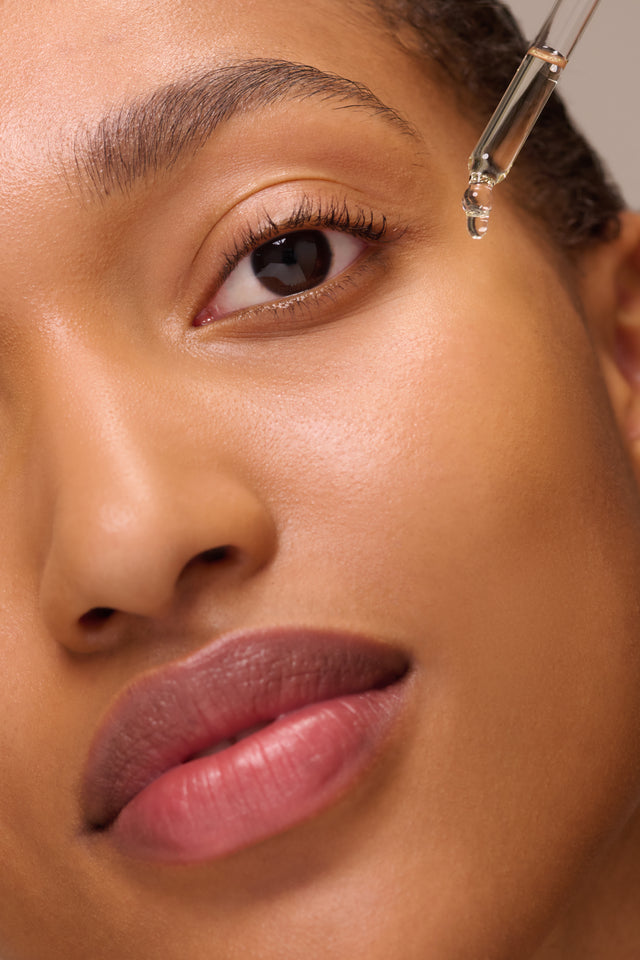How The Mind-Body-Skin Connection Works
We sat down with medical doctor, neuroscientist and one of Almora Botanica’s circle of experts Dr Tara Swart, to delve deeper into the mind-body-skin connection and how to establish habits to nurture it.
Q. Explain the mind-body and mind-skin connection.
The mind-body connection is the link between a person’s thoughts, feelings, and behaviours and their physical health. The brain and body are intricately connected, and studies have shown that the hormones and neurotransmitters associated with emotion and mental health have physical effects on blood pressure, heart rate, the gut, and sleep patterns to name a few.
The mind-skin connection echoes the same fundamentals, and what's happening with our mental health eg low mood, stress or anxiety can activate or worsen the condition of our skin and similarly skin issues can affect our mood or mental state. This topic is becoming more widely recognised and the field of Pyschodermatology has emerged to study the link between skin and mental health.
Q. The skin and stress:
There’s a normal range for the stress hormone cortisol which comes from our adrenal glands. If you have a challenging deadline, for example, you could get a spike of cortisol, but then it should go back to normal range for most of the day. When we are chronically stressed, that level is at the top end of the range or even higher all the time which can lead to many health problems, such as high blood pressure, heart disease, stroke, obesity, and diabetes. As for the skin, the physical impact of stress includes dryness, flakiness, redness, increased sensitivity, and dullness, and due to the pro-inflammatory nature of the stress response, it can cause conditions such as rosacea, eczema, dermatitis and psoriasis to flare up. Excess cortisol can also lead to extra production of oil, which can cause break outs.
Q. The skin and emotions:
Your skin is not only the physical boundary of your body but psychologically, boundary transgressions can show up on the skin. If you feel like you’ve been taken advantage of in some way or challenged verbally, emotionally, physically, or financially that can show up on your skin as a rash or flare up of an existing condition. Some people in retrospect recognise that they can link skin issues to an emotional time in their life, such as their parents getting divorced or themselves being in a toxic relationship.
Q. The hormones and skin:
Women have a natural cycle where different hormones are changing over the course of a month, so depending on the stage of the cycle and particularly the levels of oestrogen and progesterone, can affect the condition of your skin. Ovulation is usually when your skin is at its best because, in terms of evolution, this is when you would want to attract a mate. Just before and during menstruation, the skin can flare up with issues such as dryness, flakiness, redness, and breakouts.
Q. Can you share five easy ways to help regulate the hormones therefore having a positive impact your skin?
- Eat Healthy Fats: Healthy fats contribute to maintain balanced hormones and neurotransmitters and are also good for your skin.
- Eat Plenty of Fibre: Fibre plays a role in gut health, helping to regulate hormones like insulin that control blood sugar, and helps with regular bowel habits that clean out the system.
- Sleep Well: Sleep is one of the most important factors in hormonal balance. The levels of hormones rise and fall throughout the day partly due to quality of sleep.
- Exercise Regularly: It enhances hormone receptor sensitivity, helping the delivery of nutrients and hormone signals.
- Stress Reduction: Stress can affect the body’s hormones in many ways. Practice stress-reducing techniques such as meditation, yoga, deep breathing, self massage and mindfulness to keep skin calm and balanced.
Q. How can you actively improve the mind-body-skin interconnection?
Neuroplasticity is a process through which you can change your behaviour and habits and can be applied to building resilience to stress and honing the sense of interoception which is the awareness of the physiological state of the inside of your body. The first part is raised awareness of signals that your body is sending you. The second stage is focused attention which involves noticing the physical effects of stress, such dry skin, irritability, poor sleep or indigestion. The third stage is deliberate practice, which are the things you can l do to address those issues. For example, using an oil-based Almora Botanica product to lock hydration in, taking time to practice Face Yoga Fitness, drinking more water, and making sure you’re getting enough sleep. The fourth and final part is all to do with accountability which could include talking to a friend or professional, journaling the way your skin changes with the season and your hormonal cycle, and committing to a regular skincare regime.

